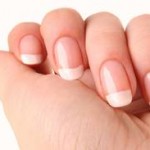Your skin helps maintain your health by providing:
- Protection. Your skin helps prevent infectious agents and other harmful substances from entering your body and protects your internal organs and structures against injury. It also keeps you from losing the life-sustaining fluids that keep your body tissues hydrated and nourished.
- Heat regulation. Blood vessels in your skin expand or contract according to how warm or cold you are. When you’re hot, you sweat. The evaporation of the sweat on your skin lowers your body’s temperature. When you’re cold, the blood vessels in your skin narrow, causing your skin to become pale and cold. With decreased blood flow in your skin, you lose less heat, conserving it for your vital organs.
- Sensation. Sensory nerves in your skin send signals to your brain about hazards, such as injury, extreme heat or extreme cold. Another group of specialized nerve endings in your skin stimulates nerve and endocrine systems that lead to sexual excitement.
- Waste disposal. Sweat glands in your skin excrete waste products, such as urea , a by-product of protein metabolism. However, this is a minor pathway of waste disposal compared with your kidneys’ production of urine.
- Early warning of health problems. Your skin’s texture, temperature, color and clarity all give information about your general health. For example, a yellowish cast to your skin may be a sign of liver disease. (Jaundice)
Your hair and nails serve important health functions, too. The hair on your head helps keep you warm, helps protect your scalp from excessive sun exposure and
cushions your head in the event of trauma. The hair around your nose, ears and eyes, including your eyebrows and eyelashes, helps screen out dust and other irritating particles. Your nails help protect the sensitive tips of your fingers and toes and provide signs as to your general health. For example, certain changes in the appearance of your nails can be an early sign of illness.
Optimal health of skin, hair, and nails is very much dependant on adequate daily intake of key nutrients including vitamins, minerals, trace elements, essential fatty acids and various phytonutrients. Proper nutrition and dietary supplementation help ensure smooth and clear skin, firm and healthy nails, as well as shiny and vital hair. Eat lots of fresh fruits and vegetables and hydrate your body. Take proper care of your hair and nails. For more information about what your nails may be saying about you. Watch this slideshow
Source: Mayo Clinic, Medical Encyclopedia, Anatomy and Physiology,


